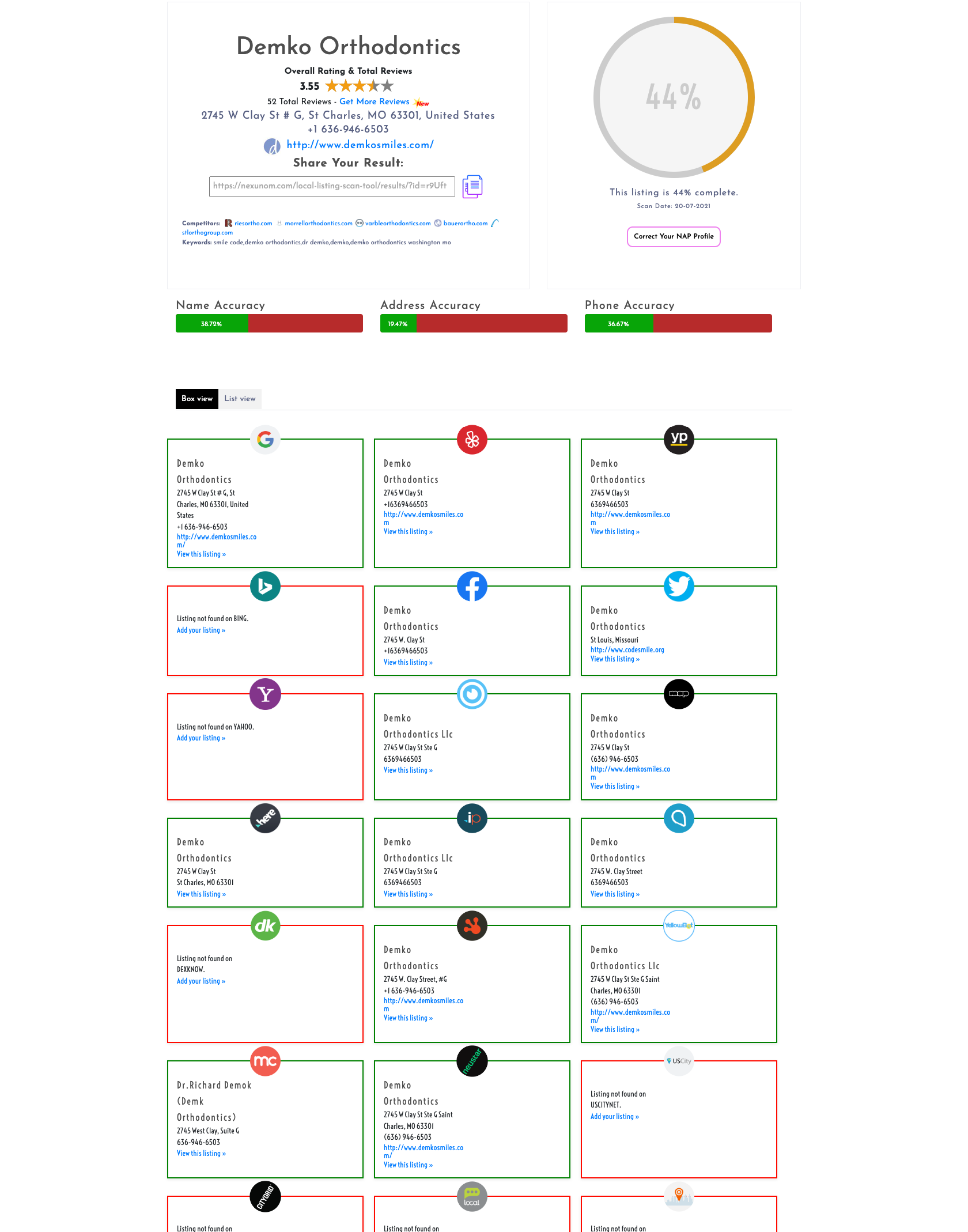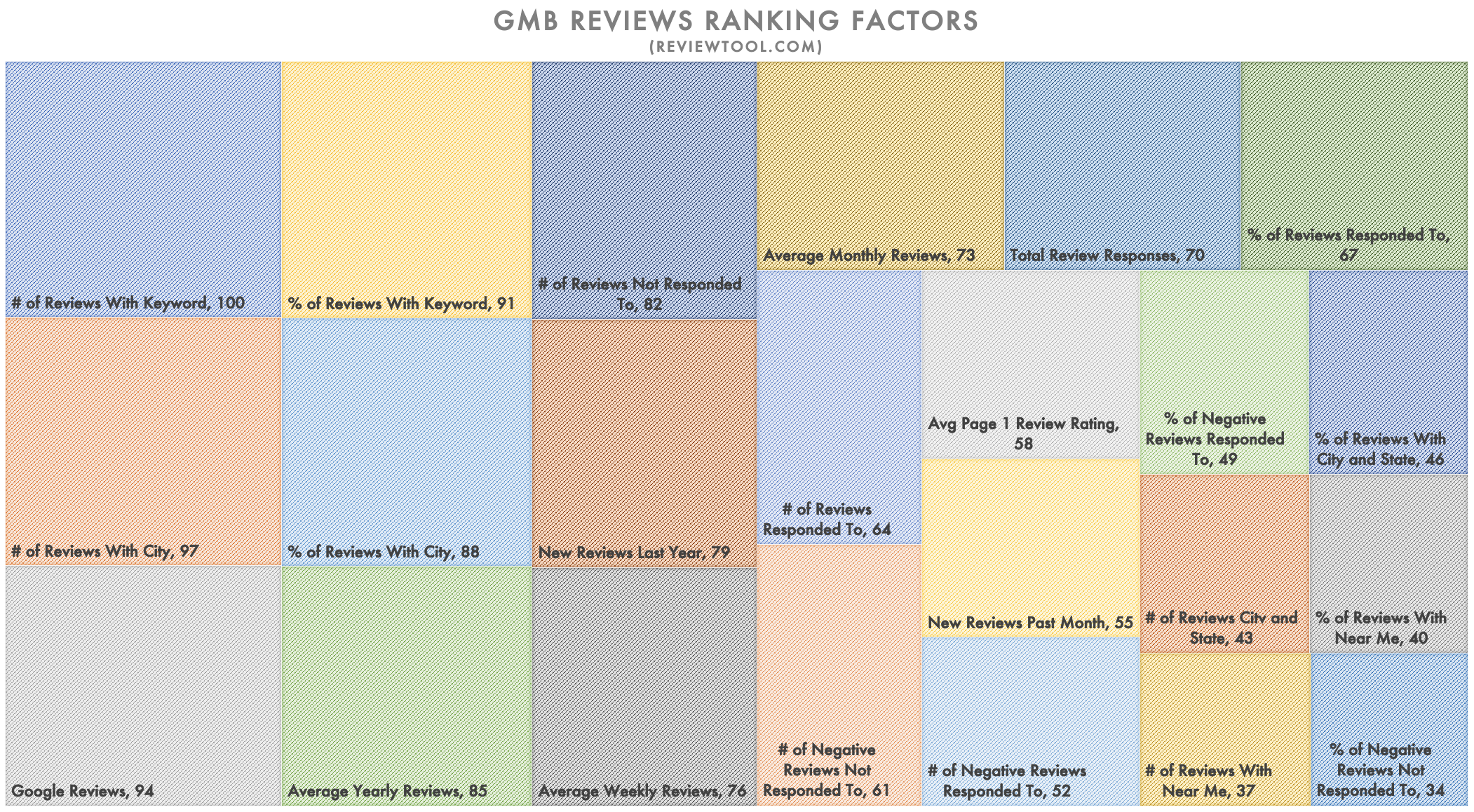-
Nexunom
Marketing firm providing different services and products.
-
Allintitle
Premium keyword research tool and long-tail keywords finder.
-
Review Tool
Review management tool used by local businesses to get more reviews.
-
Tavata
Two-way text-based website chat widget with Pay-Per-Text payment structure.
What is Local SEO?

Local SEO helps businesses market their products and services to local customers. But better than that, it brings your business to the user at the exact moment they are looking for your goods or services.
Local SEO employs a variety of strategies to ensure you are seen everywhere your local business is looking. That means woking to get your site a good rank on Google local results, but also turning to online directories, such and YELP and Google My Business, as well as managing online reviews and ensuring relevant, quality content on your website.
If 3.5 billion Google searches are performed each day, how many of those are in your area, and for a business like yours? You want to be sure you are showing up when your potential customers are looking, and SEO can help with that.
The beautiful thing about local SEO (and SEO in general) is that it allows you to be seen by customers exactly when they are looking for you. You won’t be blindly throwing information out, but rather positioning yourself to be found when a customer is looking for you.
NAP Citations

How you rank locally depends on a few factors, and the quantity and quality of citations is one. NAP citations are a very important to local SEO. NAP means name, address and phone number. NAP citations influence what search engines show for local searches. A NAP citation is when your information appears on an online directory or local listing site.
See how your business is doing by using our Local Galex business scan tool
NAP is important because Google and other search engines use this information when formulating local search results. It’s crucial to be sure your NAP is correct, not just on your site, but on all of the important local listing sites. Your NAP will be cross referenced to validate that you are in fact a true business. So it is important to be sure that wherever else your information may be found, like online directories or YellowPages, it is accurate. The more consistent NAP citations you have, the better it will be for your site. Citation consistency is actually one of the most important local SEO factors there is.
Why consistency matters
Citations are valuable because they mention your business, and the every time Google finds one of these mentions, you get credit for it. And the more mentions there are, the more prominent Google will think your business is. And that in turn will improve your local rankings. But how can you guarantee consistency?
Begin by thinking about your business and its history. Has your business undergone a name change, a move, added additional locations, or added or changed phone numbers? Write down a list of all of this information, including call tracking numbers, toll-free numbers, cell numbers, and anything else that could potentially appear in a NAP citation.
Nexunom has a great NAP citation scan tool to help you find any variations that may be out there on most important local listing sites. You can also turn to Google to search for other variations you may not have realized existed. You can search just by phone number to find any variations that may exist, and then also do the same by putting in just the business name, or just the address.
Before you submit a NAP listing to a site, you want to be completely sure you don’t already have a listing on there. Multiple listings will confuse the search engines and negatively affect your local SEO. This can be a time consuming process while it is crucial to helping your site rank better locally, but you can simply let your local SEO provider to take care of it for you.
Local SEO Factors to Consider
Local SEO is powerful and necessary for local businesses to grow. But, there are several factors that go into helping or hurting your local rankings.
The first is content, and it is only going to grow in value. Think of all of the ways potential customers can find your information - Google search, Google maps, local search, review sites, social media, video or display ads, question and answer sites, and many more - can all bring your information to user. So, be sure you are the answer to whatever question the user is asking by ensuring your content is exactly what they need.
Relevance and prominence are also important factors. Relevance refers to how well your local listing matches what the user is searching for. Prominence refers to whether your business it well-known and trusted. It takes into consideration things like inbound links, contextual links, directory listings and reviews and positive comments.
An accurate and complete Google My Business listing is also important for Google local listings results. If you haven’t already claimed your listing, do it now. Then, make sure your business is listed, and listed correctly, on other local directories where potential customers are likely to find you. According to Nexunom these are the important NAP local listing sites that you shouldn’t be missing:
If your website isn’t mobile friendly, you’re missing out on a lot of traffic and potential customers. We’ll talk more about why this is so crucial in a bit, but responsively designed sites or sites that are optimized for mobile use are crucial today.
Google Posts

Google My Business plays an important role in local SEO and can be a huge help if you are utilizing it properly. Google Posts is a new addition to Google My Business that gives you the opportunity to share relevant content and information directly on your Google Business listing, thereby making your Google local listing more relevant. You can share news, offers, videos, photos, and other information right on your Google My Business listing using Google Posts. The more information you share that is specific to what you do, as well as your location, the better. You have the opportunity to publish your information directly to people who are looking for your business.
According to Moz’s 2017 Local Search Engine Ranking Factors Survey, reviews make up about 10% of how Google is thought to rank search engines. So, it is important that you include reviews and ratings as part of your overall SEO strategy.
Reviews and Ratings

Reviews and ratings are a great way to show your relevancy and prominence, but we know businesses often worry about this because you can’t control the conversation. But, you can make all reviews, good and bad, work for you. You can read our blogs on online reviews here and about negative reviews here to learn more in depth about reviews and our review tool. Here, we’re going to discuss why they are so important to local SEO.
According to Moz’s 2017 Local Search Engine Ranking Factors Survey, reviews make up about 10% of how Google is thought to rank search engines. So, it is important that you include reviews and ratings as part of your overall SEO strategy. Read this post to learn about how to get more reviews on Google.
Part of Google’s goal is to provide search results from trusted businesses, and verified reviews do just that. And when combined with the rest of a good SEO footprint, they work to make you appear as a trusted authority. MyTestimonialEngine.com reported a study that shows 88% of consumers use online reviews when deciding whether or not to make a purchase or use a company’s services.
Google even states “Responding to reviews shows that you value your customers and the feedback they leave about your business.” And Google wants the most credible businesses to show to users - and what is a better indication of credibility than reviews from actual customers?
So, it is important to build both the quality and quantity of your online reviews (Read this guide on how to get more reveiws.) The more reviews and ratings you have (and hopefully positive ones!), the better for your local SEO. Chances are good your competitors know the importance of reviews. So make sure you aren’t missing out on new business because your potential customers turned to your competitor, who is ranking higher because they have more reviews. Also the potential customers might choose your competitors over you because of having more compelling reviews and rating.
While you work to build the quantity of reviews, the quality of your reviews is also important. Google doesn’t just want to show consumers businesses that have a lot of reviews, but businesses that have a lot of positive reviews and five star ratings. Think of it this way - your business may only have 12 five star reviews, while your competitor has twice as many reviews. Even though they have more, Google will still want to rank you higher because your reviews and their content are more relevant to the user’s search term. That means the content of the review and what people have to say about your services is also a playing factor.
You interact with your customers at several contact points, Nexunom’s review tool makes it easy for you to capture reviews at the best time - when a customer has just received your services and is happy about the experience. But not only that, we help make sure the reviews are posted on the sites that matter most.
Proximity, Relevance and Prominence Factors
What every business should be striving for in their local SEO program is a combination of proximity, relevance, and prominence. Google itself explains that local results are based on relevance, distance and prominence, all combined to find the best match for a user’s search query. And that means we have to continue to stay at the forefront of how Google applies weight to these factors.
Many believe that proximity to searcher is the number one ranking factor in local searches today. But, the weight of a factor like proximity may also be dependent on the type of query a user submits. Proximity will be much more important for an implicit geolocation search, meaning one where the user types in what he or she is looking for, without adding a location, such as “pizza.” In a search query such as this, the search engine may assume you want pizza places located near your geolocation, so the results you see may be what is physically closest to you. Once you add a location, however, say “pizza Chicago” you may see different results because you aren’t only getting results based on proximity to your location. Google explains that “if a user doesn’t specify a location in their search, Google will calculate distance based on what’s known about their location.”
So, how does proximity impact local SEO? Many believe Google gives such strong weight to proximity to make its results more relevant to what geolocal users really want to get.
But, relevance and prominence are also very important factors in local SEO. Relevance refers to how well a local listing matches what the user is searching for, while prominence refers to how well-known and trusted the business is. Ensuring you have complete, accurate and detailed business information listed will help Google know more about your business, and thereby be better able to match your listing to local search queries. In fact, being sure you’ve selected the proper business category is one of the most important determinations of relevance factor. Prominence is also reflected by the real, offline world - how well known a business or entity is offline can result in better local rankings. Also, the amount of information Google is able to learn about the business, such as its links, articles nap citations, will help build your prominence.
So, how can you use relevance and prominence in conjunction with proximity?
First, know who your audience is and be sure your website, as well as your local listings all around the web, are properly optimized for your most relevant keyword queries and service locations. Quality and consistency of your NAP citations as well as your inbound links can help with this.
Have a healthy review profile. This means plenty of positive reviews with relevant content and that are properly handled (meaning responded to by the business).
Ensure your Google My Business page is always up-to-date and complete with accurate hours and information.
Google also explains that organic web results play a factor in local SEO results.
Together, proximity, relevance and prominence can help you get found on local search.































































